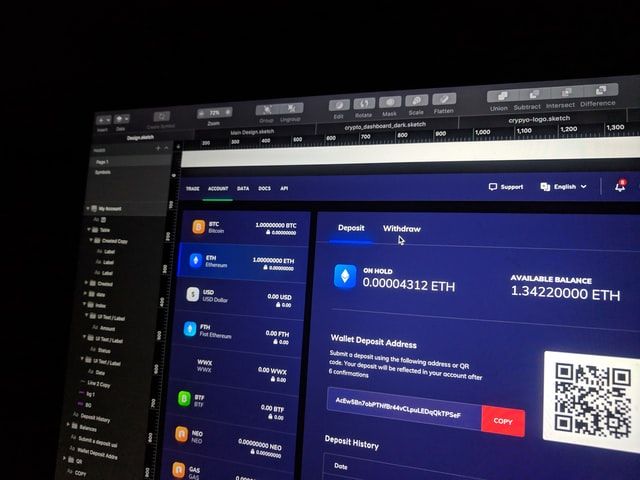With 2020 setting the stage for a more tech-driven future, 2021 promises to be a year filled with SaaS-action.
A lot of things have changed on both individual and societal levels. While businesses are pushing tech adoption for collaboration, employees are using it to boost productivity. Kids are attending schools through Microsoft Teams. Schools are looking for vendors who can develop better infrastructure. SaaS companies are undergoing a rapid transformation to meet new demands.
While we discussed the trends of 2021 earlier, here we focus on 21 companies to look out for in 2021. We have bunched them together in different categories:
1. Business Intelligence (BI) and Analytics
2. Productivity and Collaboration
3. Product Management and Marketing
4. Fintech
Table of Contents
BI and Analytics

While data has been the buzzword for most of the last decade, many companies sit on piles of unused data. Either the data is unusable or need analysts and engineers to run queries and draw insights. The new crop of BI solutions addresses this problem by making data and insights accessible to non-technical stakeholders. Here are seven companies leading the BI revolution in one way or the other.
1. Chartio
Chartio makes SQL queries a drag-and-drop affair, hiding the codes under the hood. Users need not have any coding language. It can readily integrate with Amazon Redshift, Google BigQuery, and Snowflake for data. It can also access data from Google Sheets and CSVs.
It’s a great product with excellent reviews. Can it keep the momentum going in 2021? Let’s wait and watch.
2. Heap
Heap is an analytics platform that focuses on building a great digital experience with actionable insights. It brings together product, marketing, and customer success teams, with data and analytics tools.
In 2020, it expanded into the EMEA region with headquarters in London. While adding numbers to its team, it also made some high-level appointments. 2021 will see a heap of results, hopefully.
3. Compstak
Compstak’s a brilliant example of vertical-SaaS; it provides commercial real estate data. It’s a crowdsourced data platform that helps licensed real estate brokers, landlords, investors, private equity funds, and banks.
Yes, the commercial real estate got adversely impacted due to COVID. It’s all the more reason that data transparency will be indispensable in a shrunk market, making a platform like Compstak important. Nonetheless, in a changed market situation, it would be interesting to see how Compstak’s solutions evolve in 2021.
4. Qualtrics
An SAP subsidiary until now, Qualtrics is going public this year. With COVID pushing e-commerce sales like never before, this American experience management company registered astounding growth. For the first nine months of 2020, it clocked revenue of $550million, a 31 percent increase over the last year.
With more than 75 percent of Fortune 500 companies as its clients and a fresh influx of cash post-IPO, developments at Qualtrics could alter the definition of experience management this year.
5. ActivTrak
ActivTrak is an employee productivity monitoring software. It classifies and assigns productive or unproductive labels to common apps and sites used by employees. Apart from tracking productivity, ActivTrak also helps identify disengaged employees.
As remote working became the norm, ActivTrak registered a surge in sales and continues to do so. It recently raised $50mn to double its headcount, to match the 200 percent jump in its customer count.
6. Lately
Lately is an AI-driven social media marketing software that handles more mundane tasks of cross-platform posting. Its uniqueness lies in the fact that AI draws insights and drafts posts for you. How cool can it get?
From startups to enterprise customers, just about everyone spends money on agencies or precious hours every day doing what Lately can execute in a few minutes. With social platforms cutting down on organic reach, Lately could offer an excellent way to rationalize costs on it.
7. Databricks
Even as organizations are collecting more data than ever, it gets siloed under verticals or different applications. Databricks pulls it all together and makes sense of it.
2021 is the year when Databricks plans to go public, at a valuation much higher than its current $6.2billion. After Snowflake’s blockbuster IPO, there’s a lot of excitement around Databricks’ listing.
Productivity and Collaboration

Speak of remote work, and the two things that immediately come to mind are productivity and collaboration. 2021 was a landmark for SaaS companies addressing these two challenges. Here are a few notable ones:
8. Miro
Miro is a brainstorming whiteboard tool whose usage grew from 5 percent in 2019 to 33 percent in 2020. It raised $50mn in April 2020 to increase its headcount to cater to the demands of its ever-increasing customer base. As work from home isn’t going away anytime soon, Miro is likely to kick a growth storm in 2021.
9. Figma
Marketing and UX teams know design briefs and executions are primary challenges when working from home. Figma makes design collaboration easier through real-time collaboration, feedback, and co-editing.
Figma raised a series D funding of $50million in the middle of the pandemic. In 2021, it will very likely take an ambitious route to success.
10. Slack
What will happen to Slack? Will Salesforce acquisition work wonders or spell doom? The $27.7billion deal made a lot of noise and so did Slack’s outage on the first Monday of the year.
Undoubtedly, the Salesforce ecosystem will help put it on a level playing field with Microsoft Teams. Slack in 2021 is likely to get a whole new set of features and integrations, including with Salesforce.
Understandably, the Slack story would be tracked closely by industry watchers and analysts.
11. Notion
Notion brings multiple apps and software together to help employees find the information they need in-time. Notion, along with Zoom, has been leading the consumerization of SaaS. It’s not just employees who’ve benefited; Notion has proved to be a great tool for solopreneurs and freelancers to stay organized and productive during the lockdown.
It’s been profitable since 2018 and has raised $50million in April 2020 at a valuation of $2billion. Hence, it’d be interesting to see how Notion keeps the momentum going.
12. Setapp
Of all the SaaS products, Setapp is unique because it is a suite of curated apps from the app store for Mac and iPhones. Pegged as the Netflix of apps, it provides 180 top-rated apps for boosting workflow at a single cost. It takes away the headache of purchase management of different apps and also delivers cost-benefit for smaller startups.
It started with 60 apps in 2017; that number has tripled now. With productivity taking the center stage in 2021, Setapp is likely to burst with more workflow solutions.
13. UiPath
Tasks involving little application of mind, like data entry, are best handled by bots; UiPath helps companies do just that. A robotic process automation startup, UiPath competes with the likes of Automation Anywhere. The company raised $225million in July 2020, at a valuation of $10.2billion. It confidentially filed IPO paperwork with SEC in December, reportedly at a valuation of $20billion.
14. Airtable
Touted as the tool that combines the power of the database and the familiarity of the spreadsheet, Airtable has today evolved into a low code platform. It provides infinite extensibility to its users to custom-build apps to boost productivity and collaboration. It’s also got a robust API that integrates with most data sources and tools.
Airtable raised $185million in September at a valuation of $2.6billiono, so it’d be interesting to see how it takes forward the transition towards no-code/low-code software.
15. Raycast
Raycast aims to boost productivity through a tool that works pretty much like Apple’s spotlight search. Programmers can easily navigate non-development work through a single tool. The user can extract and modify data, find documents, easily create and re-modify Jira issues, and merge GitHub requests.
It readily integrates with Asana, Jira, Zoom, Linear, G Suite, Calendar, GitHub, and Reminders.
With a seed round of $2.7million led by Accel, the startup has a lot going for it.
Product Management and Marketing

16. FullStory
FullStory is an analytics platform that product managers love. It identifies gaps in the user experience and suggests optimization at different levels. It helps product managers draw insights on issues, prioritize solutions, resolve bugs, and measure the impact of changes. It is the platform where engineering, UX, and product teams converge.
The latest funding of $10million in May 2020 brings the total investment to $67million. Founded by Google engineers and backed by investors likes Stripes and Dell Technologies, FullStory is yet to unfold its exciting story (pun intended) in 2021.
17. Pendo
From insights to roadmap and feedback, Pendo provides everything that a product manager needs. With the revenue exceeding its third-quarter target, Pendo is now on an expansion spree. In December 2020, it opened offices in Japan and Australia to add to its customer base of over 1600 businesses.
It ranked #54 on Forbes’ Cloud 100 list, won the 2020 Proddy Award for Best User Adoption Product, and landed #74 on the Deloitte 2020 Technology Fast 500. It looks poised for stellar growth in 2021.
18. Roadmunk
Roadmunk is a product road mapping tool built around customer needs and feedback. Its robust APIs integrate with data sources to produce visual roadmaps that are boardroom-ready. Its clientele includes Nike, Amazon, Slack, Autodesk, Ubisoft, and Expedia.
The business and technology landscape changes in 2021 will propel innovation and improve a product that’s already doing well. It’s a space that tech leaders would closely watch.
19. CoSchedule
CoSchedule is the fastest-growing unified marketing platform for mid-market and enterprise companies. It provides an end-to-end solution to support content marketing planning and execution.
Used by 30,000 marketers, CoSchedule featured on Gartner Magic Quadrant for content marketing platforms in 2020. Its project collaboration, social media management suites, and content distribution have received excellent user reviews. It also features among the top 10 marketing software providers on the Inc. 5000 list.
With out-of-home marketing budgets getting diverted to online marketing, CoSchedule will go all guns blazing into 2021.
Fintech

20. Stripe
Stripe powers online payments for large ecommerce businesses like Wayfair and Amazon. Its software-as-a-service (SaaS) plans are customizable to client needs. Stripe Treasury, its recent launch, for instance, allows clients to embed more banking services.
Over the past few months, Stripe has added several features to make the product more user-friendly. The new features improve workflow management of subscriptions, refunds, invoices, and tracking customer stats. The customer pages have also been rehauled for better operational efficiency and prioritizing useful customer information.
According to Bloomberg, a new round of funding is in the offing at a valuation of $70bn; twice of $36billion in April 2020.
21. Marqeta
Marqeta powers other companies to issue cards through a series of APIs. These companies are digital banks or seeking customizable credit cards. For example, Instacart provides Marqueta-powered debit cards to its drivers to prepay for customer deliveries.
Marqeta is known for its innovative features such as real-time transaction authorization, cash flow management, and just-in-time funding.
In May 2020, it raised $150million at a valuation of $4.3billion. This year it’s reportedly planning to launch its IPO at a valuation of $10billion.
Bottomline
A common thread that runs through most companies in the list is the fundamental change that the pandemic has forced upon businesses at large. With the world continuing to work remotely, business intelligence, productivity, and collaboration are going to be the primary challenges. SaaS companies addressing these workspace challenges in the new normal are the ones that will thrive.
The other set of companies with bright days ahead of them are the ones catering to the end-consumers. While Zoom and Notion are leading the charge, 2021 will witness the emergence of innovative consumer-focused SaaS solutions.
The nature and volume of demand are changing the landscape of the industry. And it sure looks exciting!






